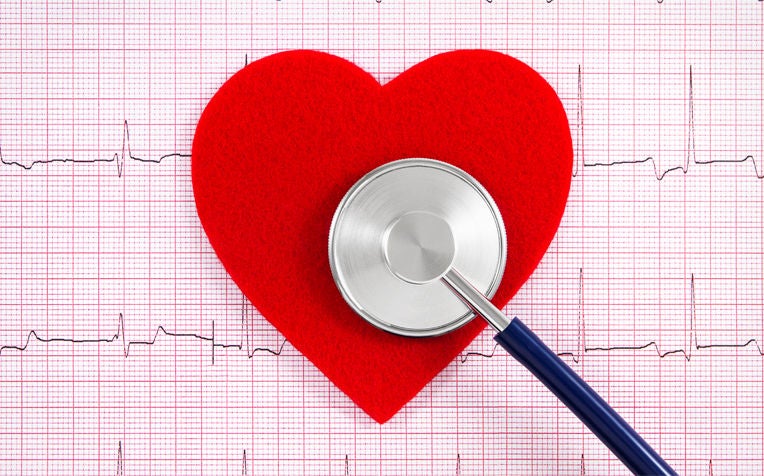
Your heart rate is the number of times your heart beats per minute. A healthy heart rate falls in the range of 60 to 90 heart beats per minute at rest.
Your heart rate, or the number of times your heart beats in a minute, is an important indicator of your heart health. However, few know about their heart rate or what its variations indicate about their general health.
What is normal heart rate?
Your heart rate is the number of times your heart pulses per minute. Activity level, fitness level, body size, emotions and even medications can influence the rate at which your heart beats.
“At rest, a healthy heart rate falls in the range of 60-90 heart beats per minute,” shares Clinical Assistant Professor Ho Kah Leng, Senior Consultant, Department of Cardiology,National Heart Centre Singapore (NHCS), a member of the SingHealth group.
Your heart rate goes up when you exercise because your heart needs to pump more oxygen-rich blood to cope with the physical activity. It reaches its maximum level during intense exercise – this is known as your maximum heart rate.
Maximum heart rate can be estimated using a simple formula:
Heart Rate Maximum (HRmax) = (220 - your age) beats per minute
“Exercising at 60-80 per cent of the maximum heart rate gives the most cardiovascular benefits and is termed the “target heart rate zone”,” says Clinical Associate Professor Tan Swee Yaw, Senior Consultant, Department of Cardiology and Director, Cardiovascular Rehabilitation and Preventative Cardiology, National Heart Centre Singapore (NHCS), a member of the SingHealth group. In some people, doctors recommend a lower range, e.g. 50-75 per cent of the maximum heart rate.
You can find out what your heart rate is by taking your pulse. To take your pulse at your wrist, place two fingers on the artery on the inside of your wrist, just below the thumb. Count the beats for 15 seconds and multiply by 4 to get the number of heart beats in a minute.
6 Common heart rate myths
With the help of Dr Ho, we debunk some common heart rate myths:
Myth 1: A resting heart rate of 50-90 beats per minute is a cause for worry.
Fact: Such a resting heart rate does not mean that there is something wrong with you, or that your heart is weak.
In general, a slow heart rate is defined as a heart rate less than 60 beats per minute. However, for athletes or people that exercise regularly, it is possible to have a resting heart rate below 60 beats per minute.
A low resting heart rate is only of concern if there are concomitant symptoms such as unprovoked fainting, giddiness and a reduced level of activity.
Myth 2: An erratic or irregular heart rate is a sign of impending heart attack.
Fact: An erratic or irregular heart rate is not a sign of a heart attack. An erratic heart rate may accompany a heart attack but it can also arise on its own, because of other factors. It does not cause a heart attack.
It is only considered a medical emergency if you notice a sudden change in heartbeat that is accompanied by:
Shortness of breath
Chest tightness or pain
Dizziness or lightheadedness
Fainting
Myth 3: A normal heart rate means the blood pressure is normal.
Fact: A normal heart rate does not mean the blood pressure is normal. A person can have a normal heart rate and still have high blood pressure. Conversely, someone with an abnormal heart rate can have normal blood pressure.
Myth 4: A fast pulse means you are stressed out.
Fact: When a person is stressed out, the body may release chemical substances that cause the heart to beat faster. However, a fast pulse does not always mean that you are stressed out. Certain medical conditions may cause the heart to beat fast without any stressors.
Myth 5: You burn more fat at a higher heart rate.
Fact: From an exercise physiology point of view, the fat burning zone occurs at 45-60 per cent of the maximum heart rate. However, the fat burning zone does not necessarily mean you’re burning a maximum of calories. You may burn more calories when exercising at higher intensities, but the percentage of calories coming from fat is slightly lower.
Myth 6: We have a predetermined number of heart beats in our lifetime. So by exercising, we may be using them up too fast.
Fact: We do not have a set, predetermined number of heart beats in our lifetime.
Ref: S13
Check out our other articles on heart health:
Sudden Chest Pains You Shouldn't Ignore
Heart Attack in Women: How Symptoms Differ From Men
How to Survive a Heart Attack When Alone
Heart Murmurs: Which Ones are Innocent? Which are Dangerous?
Sudden Death During Exercise: How It Occurs
Contributed by


















 Get it on Google Play
Get it on Google Play